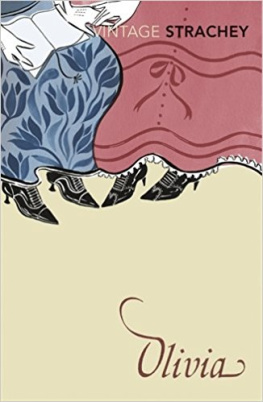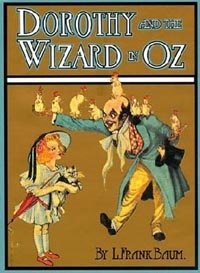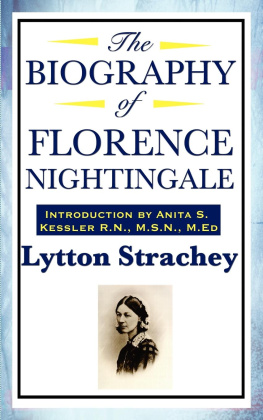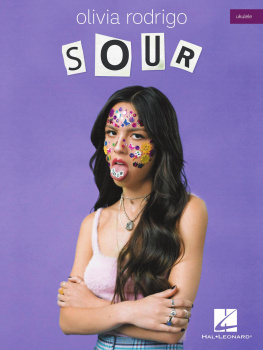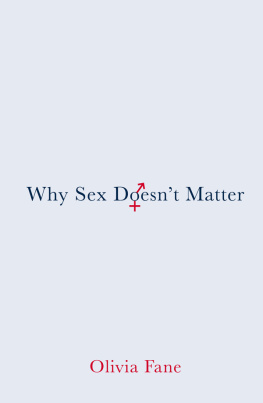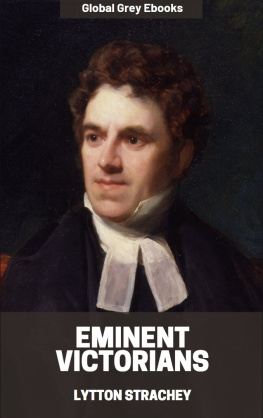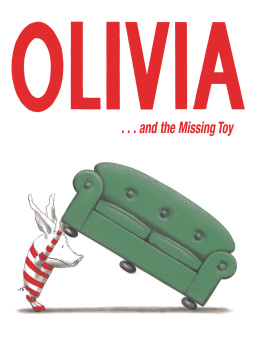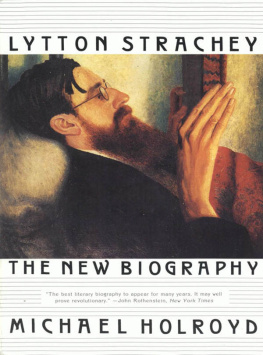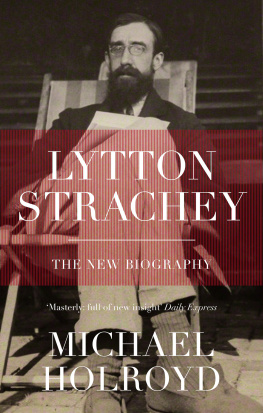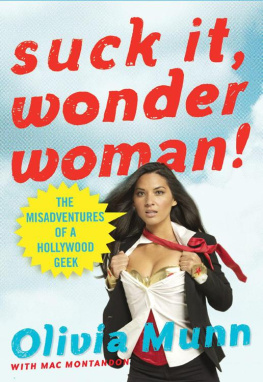Dorothy Strachey - Olivia
Here you can read online Dorothy Strachey - Olivia full text of the book (entire story) in english for free. Download pdf and epub, get meaning, cover and reviews about this ebook. year: 2008, publisher: Vintage Classics, genre: Art. Description of the work, (preface) as well as reviews are available. Best literature library LitArk.com created for fans of good reading and offers a wide selection of genres:
Romance novel
Science fiction
Adventure
Detective
Science
History
Home and family
Prose
Art
Politics
Computer
Non-fiction
Religion
Business
Children
Humor
Choose a favorite category and find really read worthwhile books. Enjoy immersion in the world of imagination, feel the emotions of the characters or learn something new for yourself, make an fascinating discovery.
- Book:Olivia
- Author:
- Publisher:Vintage Classics
- Genre:
- Year:2008
- Rating:4 / 5
- Favourites:Add to favourites
- Your mark:
- 80
- 1
- 2
- 3
- 4
- 5
Olivia: summary, description and annotation
We offer to read an annotation, description, summary or preface (depends on what the author of the book "Olivia" wrote himself). If you haven't found the necessary information about the book — write in the comments, we will try to find it.
Olivia — read online for free the complete book (whole text) full work
Below is the text of the book, divided by pages. System saving the place of the last page read, allows you to conveniently read the book "Olivia" online for free, without having to search again every time where you left off. Put a bookmark, and you can go to the page where you finished reading at any time.
Font size:
Interval:
Bookmark:
Dorothy Strachey was born in 1865. Her brother was the writer Lytton Strachey. Dorothy was a prominent member of the Bloomsbury Group and also became a great friend, and translator, of Andr Gide. In 1903 she married the painter Simon Bussy and they had one daughter. Olivia, originally published under a pseudonym in 1949, is her only novel. Olivia is based on Dorothys time at Les Ruches school in Fontainbleau, where she was taught by Marie Souvestre, who is regarded as the model for Mlle Julie. Dorothy Strachey died in 1960. Her obituary in The Times described her as a charming, witty, amusing and amused person.
TO THE BELOVED MEMORY
OF
V.W.

Lon naime bien quune seule fois: cest la premire. Les amours qui suivent sont moins involontaires.
LA BRUYRE
I HAVE OCCUPIED this idle, empty winter with writing a story. It has been written to please myself, without thought of my own vanity or modesty, without regard for other peoples feelings, without considering whether I shock or hurt the living, without scrupling to speak of the dead.
The world, I know, is changing. I am not indifferent to the revolution that has caught us in its mighty skirts, to the enormity of the flood that is threatening to submerge us. But what could I do? In the welter of the surrounding storm, I have taken refuge for a moment on this little raft, constructed with the salvage of my memory. I have tried to steer it into that calm haven of art in which I still believe. I have tried to avoid some of the rocks and sandbanks that guard its entrance.
This account of what happened to me during a year that I spent at school in France seems to me to fall into the shape of a storya short, simple one, with two or three characters and a very few episodes. It is informed with a single motive, tends to a single end, moves quickly and undeviatingly to a final catastrophe. Its truth has been filtered, transposed, and, maybe, superficially altered, as is inevitably the case with all autobiographies. I have condensed into a few score of pages the history of a whole year when life was, if not at its fullest, at any rate at its most poignantthat year when every vital experience was the first, or, if you Freudians object, the year when I first became conscious of myself, of love and pleasure, of death and pain, and when every reaction to them was as unexpected, as amazing, as involuntary as the experience itself.
I know the difficulties that surround such an enterprise. I know, for instance, how careful the adjustment must be before the necessary, dry skeleton of fact can be clothed with the warm , round, living flesh of youth, with colour and movement. I know, on the one hand, that the creature may become lean and hard, emotion withering from its bony structure, or, on the other, for want of that structure, it may lose its strength and purity and collapse into the amorphous deliquescence of sentimentality.
How should I hope to succeed in such an attempt? Why should I resist the desire to make it?
* * * * *
Love has always been the chief business of my life, the only thing I have thoughtno, feltsupremely worth while, and I dont pretend that this experience was not succeeded by others. But at that time, I was innocent, with the innocence of ignorance. I didnt know what was happening to me. I didnt know what had happened to anybody. I was without consciousness, that is to say, more utterly absorbed than was ever possible again. For after that first time there was always part of me standing aside, comparing, analysing, objecting: Is this real? Is this sincere? All the world of my predecessors was there before me, taking, as it were, the bread out of my mouth. Was this stab in my heart, this rapture, really mine or had I merely read about it? For every feeling, every vicissitude of my passion, there would spring into my mind a quotation from the poets. Shakespeare or Donne or Heine had the exact phrase for it. Comforting, perhaps, but enraging too. Nothing ever seemed spontaneously my own. As the blood dripped from the wound, there was always part of me to watch with a smile and a sneer: Literature! Mere literature! Nothing to make a fuss about! And then I would add, But so Mercutio jested as he died!
And there were not only the poets to poison the sources or emotion, there were the psychologists, the physiologists, the psycho-analysts, the Prousts and the Freuds. It was deeply interesting , this withdrawal of oneself from the scene of action, this lying in ambush, waiting and watching for the prowling beasts, the nocturnal vermin, to come creeping out of their lairs, to recognize this one and that, to give it its name, to be acquainted with its habitsbut what was left of oneself after this relinquishing of ones property? Wasnt one a mere field where these irresponsible animals carried on their antics at their own free will? Irritation, disgust, cynicism and scepticism are bred of such thoughtsthe poisonous antidotes of the poison of passion. But the poison that works in a girl of sixteenat any rate in the romantic, sentimental girl I then washas no such antidote, and no previous inoculation mitigates the severity of the disease. Virgin soil, she takes it as the South Sea islanders took measlesa matter of life and death.
How should I have known indeed, what was the matter with me? There was no instruction anywhere. The poets, it is true (for even then I frequented the poets), had a way of talking sometimes which seemed strangely to illuminate the situation. But this, I thought, must be an illusion or an accident. What could these grown-up men and women with their mutual love-affairs have in common with a little girl like me? My case was so different, so unheard of. Really no one had ever heard of such a thing, except as a joke. Yes, people used to make joking allusions to school-girl crushes. But I knew well enough that my crush was not a joke. And yet I had an uneasy feeling that, if not a joke, it was something to be ashamed of, something to hide desperately. This, I suppose, was not so much a matter of reflection (I did not think my passion was reprehensible, I was far too ignorant for that) as of instincta deep-rooted instinct, which all my life has kept me from any form of unveiling, which has forbidden me many of the purest physical pleasures and all literary expression. How can one bathe without undressing, or write without laying bare ones soul?
But now, after many years, the urgency of confession is upon me. Let me indulge it. Let me make my offering on the altar ofabsence. The eyes that would have understood are closed. And besides, it is not my soul but that of a far away little girl of sixteen.
One more oblation to the gods! May they grant me not to have profaned a rare and beautiful memory!
MY RESERVE, MY recoil from all exhibitionism, was no doubt also a matter of heredity and upbringing. Which of us at home ever alluded to feelings or ever attempted to express them? But I dont doubt we had them as strong as other people. We were a Victorian household, and, in spite of an almost militant agnosticism, attached without the smallest tinge of scepticism or hypocrisy to the ideals of the time: duty, work, abnegation, a stern repression of what was called self-indulgence, a horror and a terror of lapsing from the current code. My father, who was a man of science and passed his time in investigating with heroic patience and the strictest independence of judgment one or two of the laws of nature, would not have dreamt for a moment of submitting the laws of ethics to the same scrutiny. My mother, from whom all her children inherited an ardent love of letters, and who read me aloud
Font size:
Interval:
Bookmark:
Similar books «Olivia»
Look at similar books to Olivia. We have selected literature similar in name and meaning in the hope of providing readers with more options to find new, interesting, not yet read works.
Discussion, reviews of the book Olivia and just readers' own opinions. Leave your comments, write what you think about the work, its meaning or the main characters. Specify what exactly you liked and what you didn't like, and why you think so.

